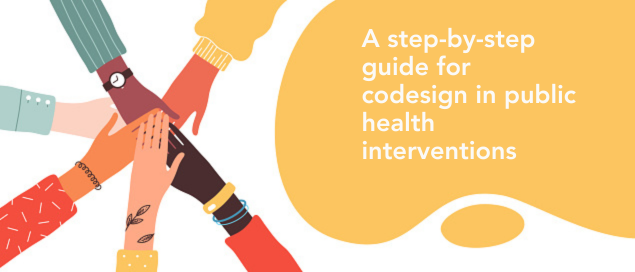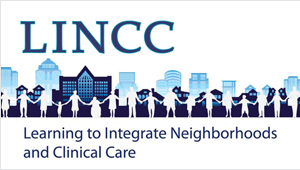Clarissa Hsu, PhD
Biography
Medical anthropologist Clarissa Hsu, PhD, has been doing Kaiser Permanente research since 2001, and became an official member of the faculty in 2011. She conducts research using a holistic approach that unites the cultural, social, and political factors that shape health and health care. Dr. Hsu was one of the first researchers to receive funding from the national Patient-Centered Outcomes Research Institute (PCORI), which supports studies on issues that are a high priority for patients, caregivers, and clinicians. PCORI-funded research follows an innovative model, including patient input at all steps in the research process. Dr. Hsu and her team christened her PCORI project LINCC: Learning to Integrate Neighborhoods and Clinical Care.
The LINCC project designed, piloted, and evaluated a new primary care role: connecting patients to community resources. This new community resource specialist role was spread throughout Kaiser Permanente Washington, with a robust evaluation and implementation support co-led by Dr. Hsu through KPWHRI’s Center for Accelerating Care Transformation. LINCC also resulted in the creation of valuable health care resources, including an article on having patients as co-investigators, as well as a guide and set of care-design templates for engaging a cohort of patients in co-designing care.
Dr. Hsu is also at the forefront of other prevalent health issues, working to document, design, evaluate, and disseminate new approaches and best practices. She seeks to help chronic pain patients taper off and find alternatives to opioids. She also works to improve how care delivery systems interact with patients and family members around sensitive and complex topics such as dementia diagnoses, use of antipsychotics in youth, blood pressure diagnosis and control, cannabis use, and childhood vaccinations.
Dr. Hsu is an affiliate professor at the University of Washington School of Public Health.
Research interests and experience
-
Clinical Quality Improvement
Primary care; ambulatory care; preventive medicine; health care design and workforce issues; addressing social determinants of health -
Patient-Centered Outcomes Research/Patient-Centered Care
Patient engagement and partnership; shared decision making -
Chronic Pain
Using safe and effective methods to treat pain, supporting patients to minimize opioid use, cannabis use, communication about pain -
Addressing Social Risks in Clinical Settings
Screening and providing support for patients with social needs -
Complementary & Integrative Health
Patient experiences with complementary and alternative medicine
-
Evaluation Science and Implementation and Dissemination Science
Qualitative and mixed-methods approaches
-
Healthy Communities
Clinic-community linkages; preventive medicine; addressing social determinants of health
-
Addictions
Prevention and treatment
-
Social Determinants of Health
-
Chronic Illness Management
-
Vaccines & Infectious Diseases
Recent publications
Morton CH, Hsu C. Contemporary dilemmas in American childbirth education: findings from a comparative ethnographic study. J Perinat Educ. 2007;16(4):25-37. PubMed
Green BB, Anderson ML, Ehrlich K, Hall YN, Hansell LD, Hsu C, Joseph D, Margolis KL, McClure JB, Munson SA, Thompson MJ. Blood pressure checks for diagnosing hypertension: health professionals' knowledge, beliefs, and practices. J Am Board Fam Med. 2022;35(2):310-319. doi: 10.3122/jabfm.2022.02.210318. PubMed
Placzek H, Cruz S, Chapdelaine M, Carl M, Levin S, Hsu C. Intersecting systemic and personal barriers to accessing social services: qualitative interviews in northern California. BMC Public Health. 2021 Oct 24;21(1):1933. doi: 10.1186/s12889-021-11981-5. PubMed
Oberg EB, Bradley RD, Hsu C, Sherman KJ, Catz S, Calabrese C, Cherkin D. Patient-reported experiences with first-time naturopathic care for type 2 diabetes. PLoS One. 2012;7(11):e48549. doi: 10.1371/journal.pone.0048549. Epub 2012 Nov 7. PubMed
Chubak J, Tuzzio L, Hsu C, Alfano CM, Rabin B, Hornbrook MC, Spegman A, Von Worley A, Williams A, Nehklyudov L. Providing care for cancer survivors in integrated health care delivery systems: practices, challenges, and research opportunities. J Oncol Pract. 2012 May;8(3):184-9. doi: 10.1200/JOP.2011.000312. Epub 2012 Jan 24. PubMed
ENSPIRE Codesign Playbook

Develop a codesign project and process with insights from the ENSPIRE study.
Healthy findings blog

Accelerating qualitative research with Rap-GAP
Clarissa Hsu and Jess Mogk share a new way to fast-track insights from qualitative data.
Research roundup

What's new in cannabis use research?
Use in pregnancy and screening in primary care studied by KPWHRI’s Kiel, Matson, and Lapham.
research

LINCC-ing patients with community resources
Study ends but benefits for Kaiser Permanente members continue — thanks to a new support role in the regions’ clinics, writes Dr. Clarissa Hsu.
Resources
Partnering with Patients as Equals in Co-Designing Primary Care: Examples and Tools from the LINCC Project
New findings

Overcoming undervaccination
Clarissa Hsu, PhD, asked parents why they decline or delay vaccinating their children to explore ways to overcome barriers to getting vaccinated.



